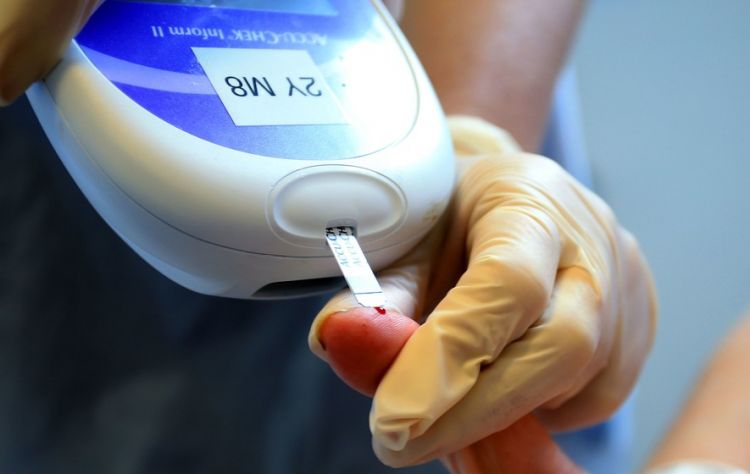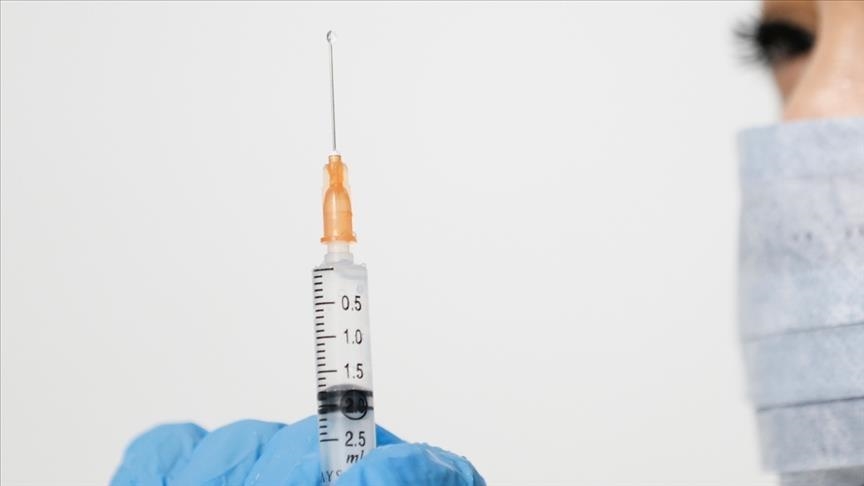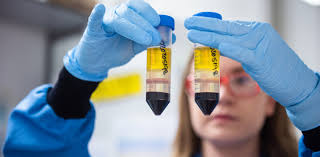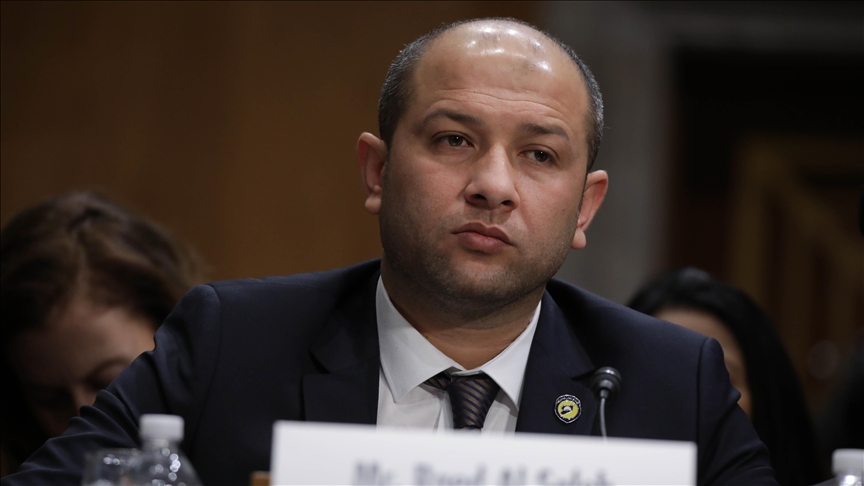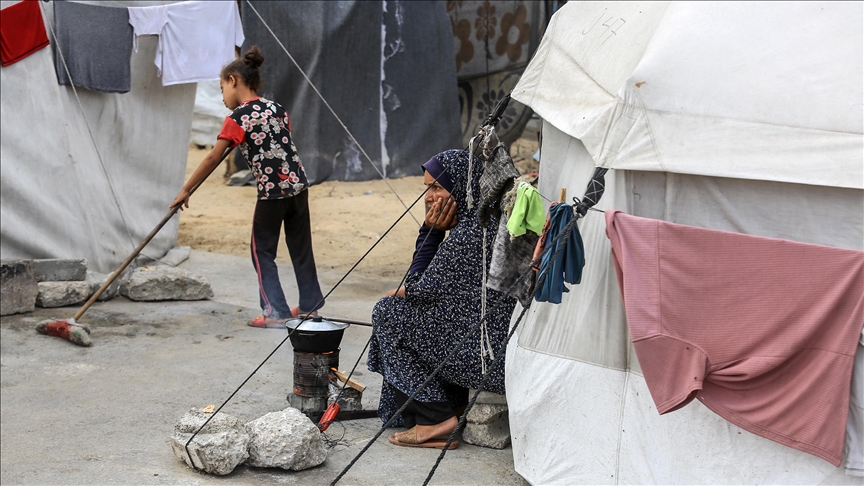A device some call an artificial pancreas was shown to better control blood sugar levels in hospitalized patients with Type 2 diabetes compared with those getting insulin manually, according to a study published Monday in the New England Journal of Medicine.
The device, variations of which have been used to treat Type 1 diabetes, kept blood glucose in the target zone more consistently than the control group, none of whom were receiving critical care. In future generations, experts believe, this technology could improve health outcomes and reduce doctors' and nurses' workloads managing glucose levels for the millions of patients with diabetes admitted to hospitals each year.
"This system just reacts to the rising and dropping glucose," said study author Roman Hovorka, director of research at the University of Cambridge Metabolic Research Laboratories.
Hovorka said this is the first study showing the system's effectiveness with Type 2 diabetes outside a critical care setting. His team previously showed this to be feasible in a small study of 40 people, half of whom received automatic insulin delivery.
he US Food and Drug Administration approved a so-called artificial pancreas in 2016 for patients with Type 1 diabetes.
"The control of blood glucose in the hospital is not particularly good, and there definitely is a need to address this issue," said Dr. Steven Russell, associate professor of medicine at Massachusetts General Hospital and Harvard Medical School. Russell, who was not involved in the new study, researches automated glucose control on a project known as the Bionic Pancreas.
These machines "give data every five minutes. And we can't possibly deputize a person to make decisions that frequently," Russell added.
"It's a process that lends itself to automation."
A closed loop
More than 30 million adults in the United States have diabetes, according to the US Centers for Disease Control and Prevention. It's the seventh leading cause of death and the top cause of kidney failure, the agency says.
Type 1 diabetes is an autoimmune condition in which the pancreas doesn't produce much, if any, insulin -- a hormone your body needs to balance glucose in your bloodstream. In Type 2 diabetes, which develops over many years and has been linked to obesity, the body becomes less responsive to insulin.
Type 1 diabetes is typically more challenging to control than Type 2 because glucose levels change more rapidly in the former, Russell said.
If blood sugar is too high or too low, it can lead to a host of complications including kidney damage, nerve problems and diabetic comas.
"In health care settings ... you would assume you were getting the best possible care for all of your medical conditions," said Dr. Jennifer Sherr, a pediatric endocrinologist and associate professor at Yale University School of Medicine. Sherr was not involved in the new study, but she has researched similar insulin-delivery systems and, as a person with Type 1 diabetes, uses an automated system herself.
"Staff in hospitals are taxed with a number of patients; it's difficult to make sure insulin delivery is timely when meals are arriving into rooms, and there's stress and other factors going into it," she said.
Havorka's "closed-loop insulin delivery" system, as it is technically called, used a real-time blood glocose sensor and a pump that released a rapid-acting insulin medication under the skin.
These devices communicated wirelessly with a tablet computer running a predictive algorithm.
The system kept 70 patients' glucose levels in the target range 65.8% of the time, versus 41.5% of the time for the 66 in the control group -- a difference of roughly 24 percentage points.
"It's a larger jump than you see in most other closed-loop studies," Sherr said.
The study was conducted at two hospitals in Europe: Addenbrooke's Hospital in Cambridge, United Kingdom, and the University Hospital in Bern, Switzerland. Patients were followed up to 15 days or until they were discharged from the hospital.
When controlling glucose with insulin, patients run the risk of getting critically low blood sugars, or hypoglycemia, experts say. Though the new research didn't show a statistical difference between how long glucose levels dipped too low in either group, Russell said the study might have lacked the large, diverse patient population it needed to prove this point. Still, none of the patients in the study experienced severe hypoglycemic episodes, the authors wrote.
Both groups received roughly the same amount of insulin on average, as well. Hovorka said this was evidence that insulin was delivered more efficiently and with better timing, catering to patients' individual needs.
"The promise of artificial pancreas in general is to deliver insulin when it's needed and in the right amount," Russell said.
Several patients reported irritated skin from the sensor's adhesive and bruising where the tube was inserted, according the study. The researchers also reported "sensor failures in two patients and a pump-check error in one patient."
"To be able to use this technology widely in the clinic, some of these technological issues will need improvement," Hovorka said. "These issues are being sorted out, but ... it is not technology which is foolproof."
Russell said that "the system is clearly not ready for commercial use in its current form," but it offers an important proof of principle.
"I would argue that a system that has a rare rate of failures and overall gets better glycemic control would be an improvement over the current situation, which also has failures of a different type," Russell said.
"Even if the system isn't 100% perfect, which nothing is, it's probably still going to be better than the current way of doing things."
A pancreas by any other name
Experts say the "artificial pancreas" doesn't completely equal its biological counterpart.
"It's mimicking important functions of the pancreas but not the whole function of the pancreas," Hovorka said.
The pancreas produces other hormones beyond insulin, such as another called glucagon, and its separate roles in the digestion of food are typically unaffected by diabetes, Russell said.
Sherr said she tends not to use the term "artificial pancreas" because some patients, such as the children she works with, may mistakenly believe that it requires an invasive surgery.
Hovorka said that the wider usage of an "artificial pancreas" in Type 2 diabetes will require further research on how the device affects health outcomes, such as the length of hospital stays and the rates of infections and other complications. But its wider use may ultimately come down to whether it proves to be cost-effective, he said.
"It's more health economics than the actual treatment," Hovorka said. "I think the potential for improving glucose control is definitely there."
Russell said that such a system may ultimately be effective for "a subset of patients with Type 2 diabetes," such as those who take multiple shots a day of long- and short-acting insulins. Their diabetes may be more difficult to control, he said, and they may be more likely to suffer the complications of diabetes, such as amputations, vision and kidney problems.
Even within the hospital, studies like this may be "reassuring" for people with diabetes who may be unexpectedly hospitalized someday, Sherr said.
"Nobody plans to become extremely sick," she said. "As we go through these experiences in life, we [hope to] get the best care taken of us."

